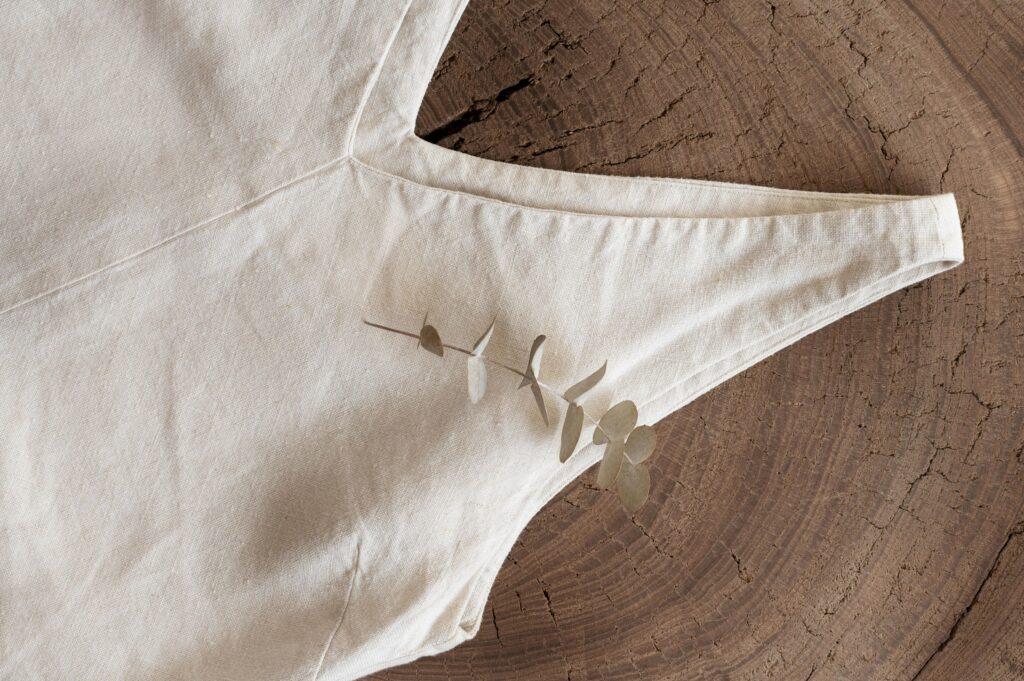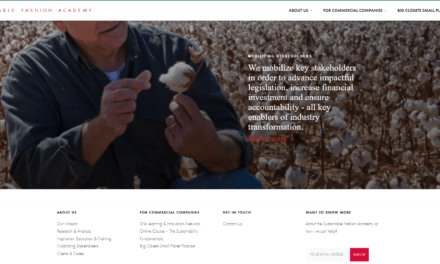As a fashion enthusiast, I have always been intrigued by the latest trends and styles. However, with the growing concern for the environment, I have become more conscious of my fashion choices. This led me to discover the world of eco-friendly fashion, particularly sustainable online shopping clothes.
In this article, I will be discussing the impact of fast fashion on the environment, what sustainable online shopping is, the benefits of shopping sustainably, eco-friendly fabrics and materials used in sustainable fashion, sustainable fashion brands to shop online, how to identify sustainable online shopping clothes, top sustainable fashion influencers to follow on social media and tips for building a sustainable wardrobe through online shopping.
Eco-Friendly Fashion
Eco-friendly fashion, also known as sustainable fashion, is a movement that advocates for ethical and sustainable practices in the production of clothing and accessories. The goal of this movement is to reduce the negative impact of the fashion industry on the environment and promote social responsibility. Eco-friendly fashion involves the use of sustainable materials, ethical production practices, and recycling or upcycling of clothing to reduce waste.
The Impact of Fast Fashion on the Environment
Fast fashion is a term used to describe the mass production of inexpensive clothing that is quickly designed and manufactured to meet the latest fashion trends. This has led to a rapid increase in the production and consumption of clothing, resulting in a significant negative impact on the environment. The fashion industry is responsible for a large amount of pollution, including water pollution, air pollution, and the release of greenhouse gases. Additionally, the production of clothing requires a significant amount of energy, water, and other resources, leading to the depletion of natural resources.
What is Sustainable Online Shopping?
Sustainable online shopping involves purchasing clothing and accessories that are produced using sustainable materials and ethical production practices. This includes the use of environmentally friendly materials, such as organic cotton, recycled polyester, and bamboo, as well as the use of renewable energy sources in the production process.
Sustainable online shopping also involves supporting brands that prioritize ethical production practices, such as fair labor conditions and minimizing waste. This includes upcycling or recycling clothing, as well as reducing the amount of packaging used in shipping.
The Benefits of Sustainable Online Shopping
There are numerous benefits to shopping sustainably online. Firstly, sustainable clothing is typically made from higher quality materials that are more durable and longer-lasting, reducing the need for frequent replacements. This ultimately saves money in the long run.
Secondly, sustainable clothing is produced using environmentally friendly materials and practices, reducing the negative impact on the environment. Thirdly, supporting sustainable brands promotes ethical production practices and fair working conditions, contributing to a better world for all.
Eco-Friendly Fabrics and Materials Used in Sustainable Fashion
Eco-friendly fabrics and materials used in sustainable fashion include organic cotton, recycled polyester, bamboo, linen, and hemp. These fabrics are produced using environmentally friendly processes and are biodegradable, reducing the amount of waste produced by the fashion industry.
Organic cotton is grown without the use of pesticides or synthetic fertilizers, reducing the negative impact on the environment. Recycled polyester is made from recycled plastic bottles, reducing the amount of plastic waste that ends up in landfills. Bamboo is a highly sustainable material that grows quickly and requires less water than traditional cotton.
Sustainable Fashion Brands to Shop Online
There are numerous sustainable fashion brands to shop online, each with their own unique style and ethical production practices. Some popular sustainable fashion brands include Reformation, Everlane, Pact, Patagonia, and Stella McCartney. These brands prioritize sustainable materials, ethical production practices, and fair labor conditions.
1. Everlane:
Everlane is a popular sustainable fashion brand known for its commitment to transparency and ethical production. They provide detailed information about the factories where their products are made, including the materials used and the production process. Everlane offers a wide range of high-quality basics such as T-shirts, jeans, sweaters, and shoes.
They prioritize using sustainable materials like organic cotton, recycled polyester, and responsibly sourced leather. Everlane also focuses on reducing waste and uses minimal packaging for their products.
2. Reformation:
Reformation is a women’s sustainable fashion brand that combines style and sustainability. They create trendy and feminine clothing using eco-friendly materials like organic cotton, linen, and Tencel. Reformation emphasizes responsible manufacturing by incorporating practices like water-saving techniques, renewable energy, and waste reduction.
They provide a “RefScale” for each garment, which shows the environmental impact in terms of water, carbon dioxide emissions, and waste compared to conventional clothing. Reformation offers a wide range of dresses, tops, bottoms, and accessories that are both fashionable and sustainable.
3. People Tree:
People Tree is a pioneer in fair trade and sustainable fashion. They work with skilled artisans and farmers in developing countries to create beautiful clothing and accessories for men and women. People Tree focuses on using organic cotton, Tencel, and other sustainable materials. They promote fair wages, safe working conditions, and support for local communities in their supply chain.
People Tree offers a variety of stylish and unique designs, including dresses, tops, knitwear, and loungewear, all crafted with a commitment to sustainability and social responsibility.
4. Patagonia:
Patagonia is a well-known outdoor clothing brand that places a strong emphasis on sustainability and environmental activism. They offer a wide range of outdoor apparel and gear for men, women, and children. Patagonia uses recycled materials like polyester, nylon, and down, as well as organic cotton and hemp.
They are committed to fair trade practices and ensure the welfare of the workers throughout their supply chain. Patagonia also encourages customers to repair and recycle their products to extend their lifespan, reducing waste. Additionally, Patagonia donates a percentage of their profits to grassroots environmental organizations.
5. Thought:
Thought, previously known as Braintree Clothing, is a sustainable fashion brand offering clothing for men and women. They focus on using natural and eco-friendly fabrics like bamboo, hemp, organic cotton, and Tencel. Thought emphasizes the importance of slow fashion and designs pieces that are timeless and versatile.
They prioritize fair trade practices and work with factories that provide safe working conditions and fair wages. Thought offers a range of clothing options, including dresses, tops, trousers, and accessories, all with a focus on sustainability and style.
6. Stella McCartney
Stella McCartney is a renowned fashion designer known for her commitment to sustainability and animal rights. She is recognized as one of the pioneers in the field of sustainable luxury fashion. Here are more details about Stella McCartney:
- Sustainable Materials: Stella McCartney is dedicated to using sustainable and cruelty-free materials in her designs. She avoids using leather, fur, and exotic skins and instead opts for innovative alternatives like vegetarian leather (also known as “alter-nappa”), recycled polyester, organic cotton, and regenerated cashmere. She actively seeks out new eco-friendly materials to reduce the environmental impact of her collections.
- Ethical Production: Stella McCartney places great importance on ethical production practices. She ensures that her supply chain is transparent, and her products are made under fair working conditions. The brand works with suppliers who adhere to strict social and environmental standards, and they have implemented measures to reduce waste and conserve energy throughout their production processes.
- Circular Economy Initiatives: Stella McCartney promotes circularity by embracing initiatives like garment recycling and upcycling. They have launched a take-back program that allows customers to return their old Stella McCartney pieces, which are then repurposed or recycled into new materials. The brand also encourages repair services to extend the lifespan of their products.
- Vegan Fashion: Stella McCartney is known for her commitment to animal rights and creating cruelty-free fashion. She does not use any animal-derived materials in her designs, making her brand a leading choice for vegan fashion. Stella McCartney’s collections include a wide range of clothing, footwear, accessories, and handbags that are all animal-friendly.
- Transparency and Activism: Stella McCartney advocates for transparency within the fashion industry and actively engages in sustainability dialogues. She has been vocal about the need for change in the fashion industry and uses her platform to raise awareness about environmental and social issues. Stella McCartney collaborates with various organizations and initiatives that promote sustainability and works towards making the fashion industry more responsible.
Stella McCartney’s brand stands as a testament to the fact that sustainable fashion can be both luxurious and stylish. Her commitment to innovative materials, ethical production, circularity, and animal rights has made her a leading figure in the sustainable fashion movement.
How to Identify Sustainable Online Shopping Clothes
Identifying sustainable online shopping clothes can be challenging, as many brands use greenwashing tactics to appear more sustainable than they actually are. However, there are a few key things to look out for when shopping sustainably online.
Firstly, check the materials used in the clothing. Look for materials that are environmentally friendly, such as organic cotton, recycled polyester, and bamboo.
Secondly, research the brand’s production practices and policies. Look for brands that prioritize ethical production practices and fair labor conditions. Thirdly, look for certifications such as the Global Organic Textile Standard (GOTS) or the Fair Trade certification.
Top Sustainable Fashion Influencers to Follow on Social Media
If you’re looking for inspiration for sustainable fashion, there are numerous sustainable fashion influencers to follow on social media. Some popular sustainable fashion influencers include:
- Venetia La Manna is a sustainable lifestyle advocate, writer, and content creator. She is known for her work in promoting conscious living, ethical fashion, and environmental activism. Venetia shares valuable insights and resources on her website and social media platforms, encouraging individuals to make sustainable choices in their everyday lives. For more information, you can visit her website at www.venetialamanna.com or follow her on Instagram at @venetialamanna.
- Aja Barber is a writer, stylist, and sustainable fashion advocate. She uses her platform to challenge the fashion industry’s harmful practices and advocate for intersectional sustainability. Aja’s work focuses on issues related to racial and social justice within the fashion world. She shares her thoughts, recommendations, and educational content on her website and Instagram. You can find her at www.ajabarber.com or follow her on Instagram at @ajabarber.
- Aditi Mayer is a sustainable fashion blogger, photographer, and storyteller. Through her work, she explores the intersections of style, sustainability, and social justice. Aditi raises awareness about the environmental and social impact of the fashion industry, promoting ethical and inclusive practices. You can discover her photography and insights on her website and follow her on Instagram at @aditimayer or visit her website at www.aditimayer.com.
- Sarah Lazarovic is an artist, writer, and sustainable fashion advocate. She uses her art to convey powerful messages about consumerism, waste, and sustainable living. Sarah’s illustrations and writings highlight the importance of conscious consumption and encourage individuals to rethink their relationship with fashion. For more of her work, you can visit her website at www.sarahlazarovic.com or follow her on Instagram at @sarahlazarovic.
These influencers promote sustainable fashion and share tips and advice on how to shop sustainably.
Tips for Building a Sustainable Wardrobe through Online Shopping
Building a sustainable wardrobe through online shopping can be challenging, but there are a few tips to make it easier.
- Firstly, invest in high-quality, timeless pieces that will last for years to come.
- Secondly, research sustainable brands and prioritize shopping from them.
- Thirdly, consider buying second-hand clothing or upcycling your old clothing to reduce waste.
- Lastly, consider renting clothing for special occasions instead of buying new pieces.
Conclusion – The Future of Sustainable Fashion in Online Shopping
The future of sustainable fashion in online shopping looks promising, as more and more brands are prioritizing ethical production practices and sustainable materials. By making small changes in our fashion choices, we can all contribute to a better world for ourselves and future generations. It’s time to embrace sustainable fashion and make a positive impact on the environment.












